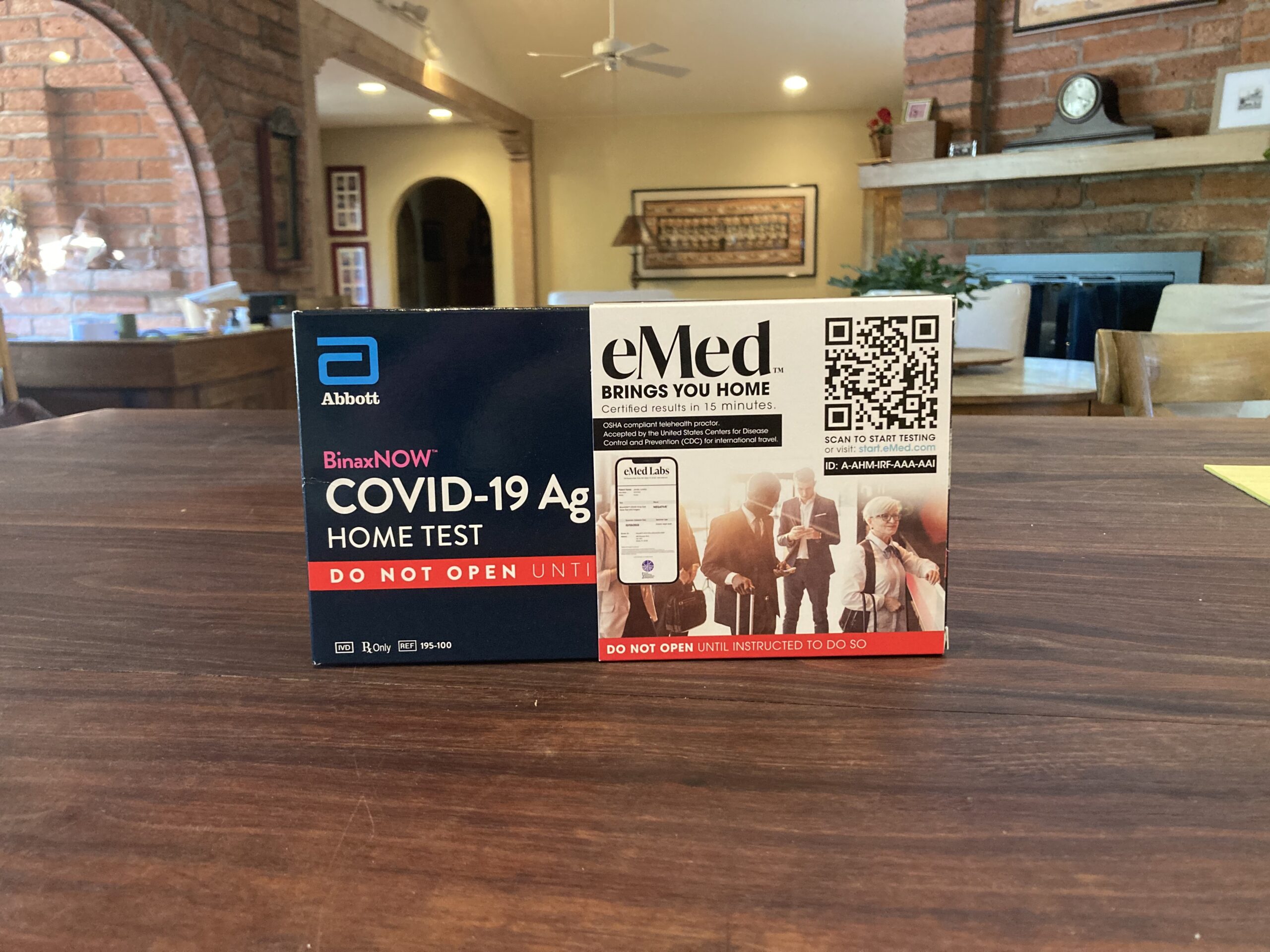With the federal government phasing out paying for PCR COVID testing, home rapid tests will become more important for diagnosis & treatment as well as satisfying travel & visa COVID testing requirements.
For the first time, at home rapid tests can now provide results that are actionable for diagnosis & treatment while also satisfying administrative travel testing requirements. The process that turns a home rapid test into actionable information was created under a partnership between eMed and Abbott Labs.
The eMed tool is pretty simple. Even I was able to do it. The package insert gives you a step-by-step process to use with your cell phone. I think it even works with those android phones. It’s a ‘virtually proctored test’ and produces verified results within about 20 minutes.
If you follow all the directions, you get a CLIA-waived laboratory result that’s accepted by CMS & CDC… meaning the results can be used for diagnostic purposes and to prescribe antiviral medications. Negative test results satisfy international travel requirements because the results are accepted by CDC and CMS.
Visit the eMed website
Here’s a bullet list of what the tool does:
- Individuals receive a CLIA-waived laboratory report accepted by the CDC, meaning the results can be used to prescribe antiviral medications.
- The lab report is also accepted by major airlines when COVID-related travel restrictions are in place (for certain international travel destinations).
- Testing data & reports can be made available through a customizable dashboard to public health agencies, employers, schools.
- Previously purchased FDA-authorized testing kits can be transformed into a Test-to-Treat enabled experience by simply adding an eMed QR code.
eMed says they’re expanding their model to include testing for influenza, HIV, STDs/STIs, a women’s health package (including UTIs, yeast infections, etc.), drug testing, Monkeypox etc.
Visit the eMed website
Note: This isn’t a sponsored post or anything. I just put it up because it looks like a useful tool especially now that the fed’s are phasing out paying for PCR testing.

